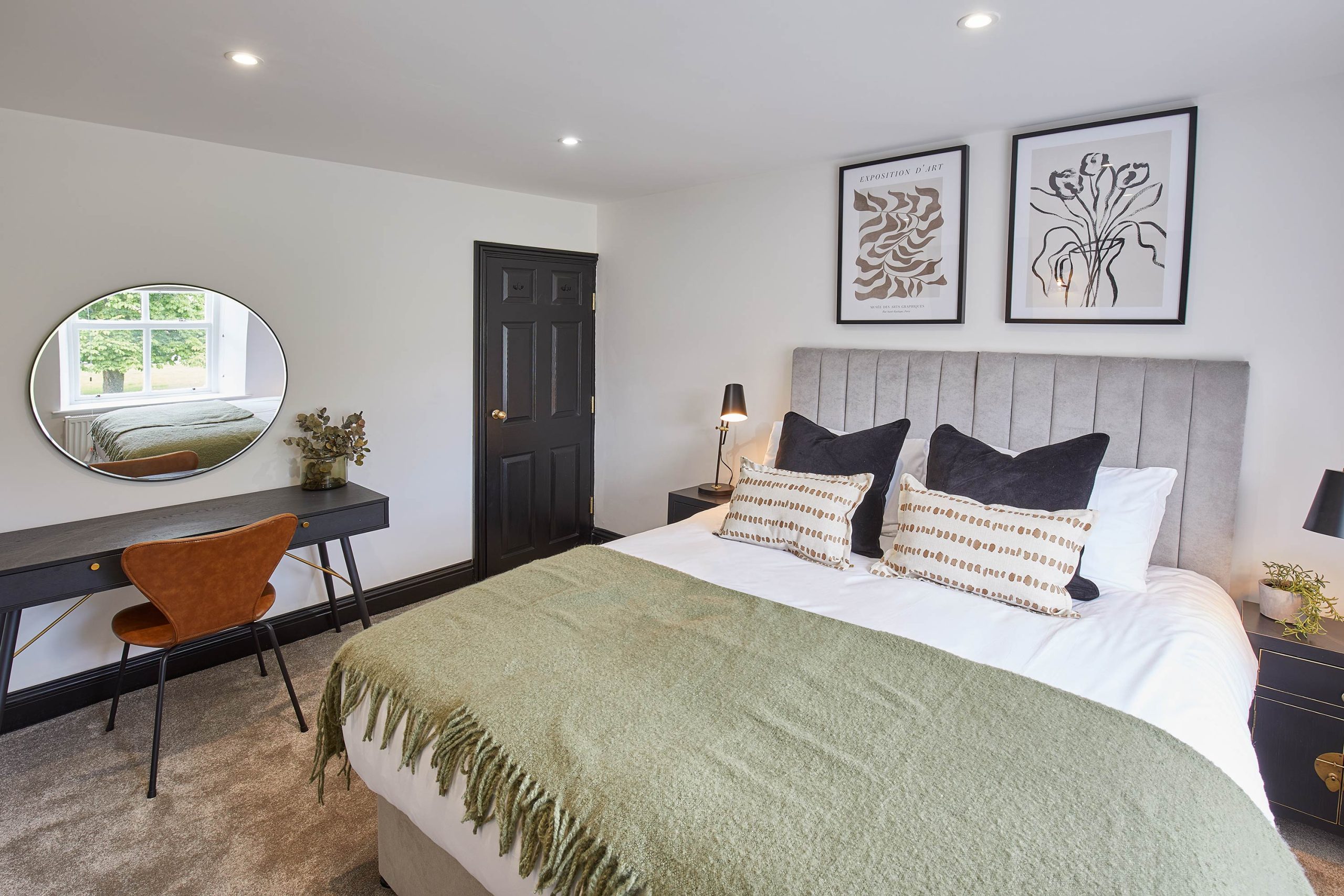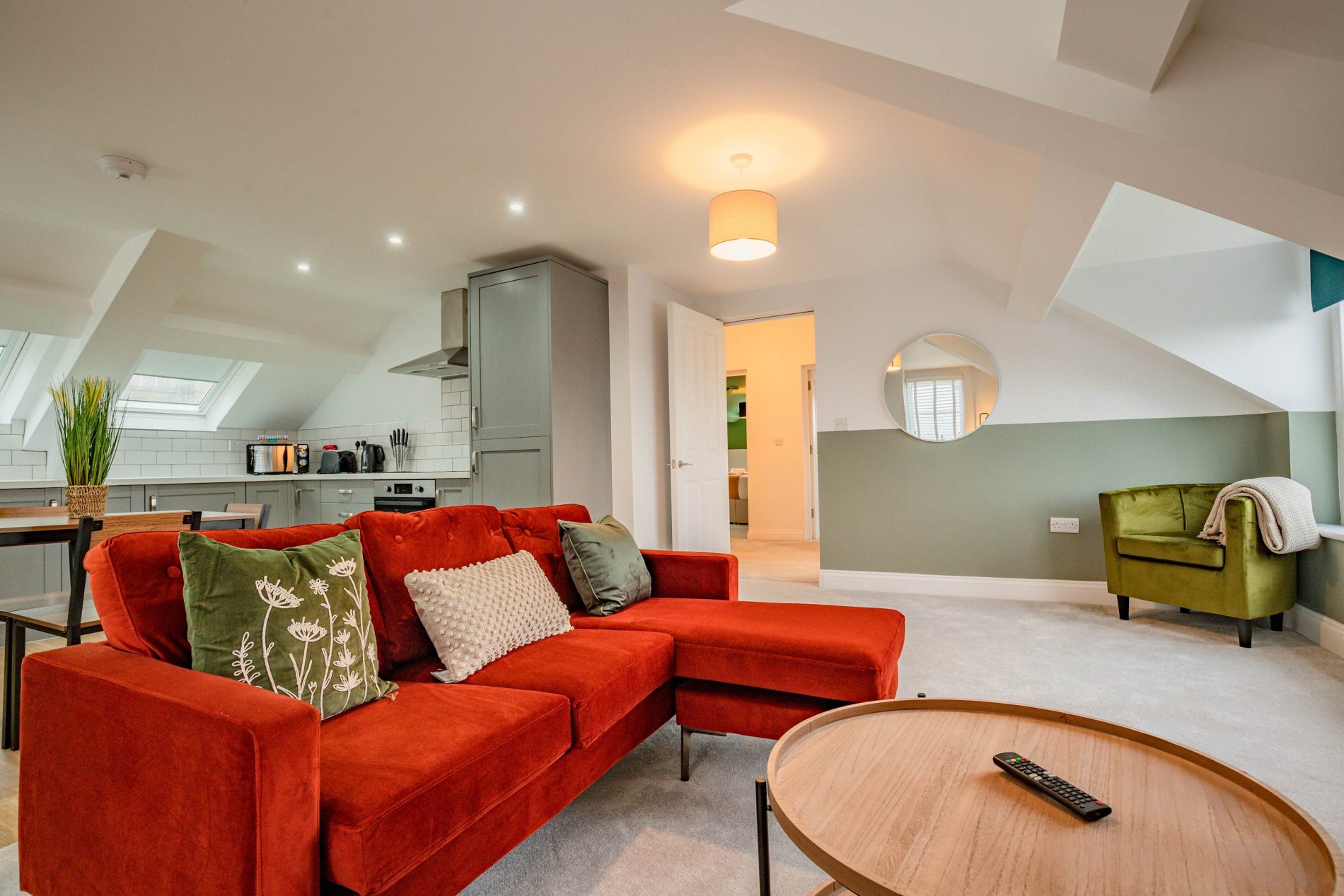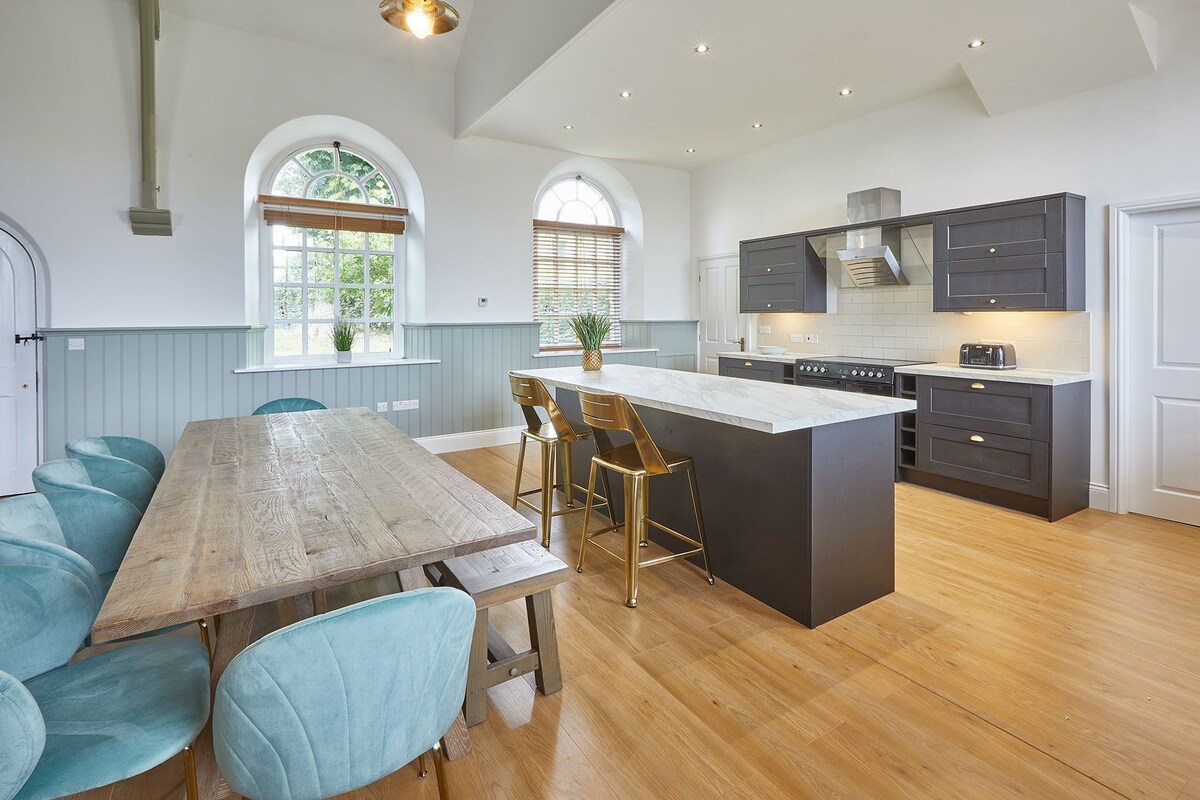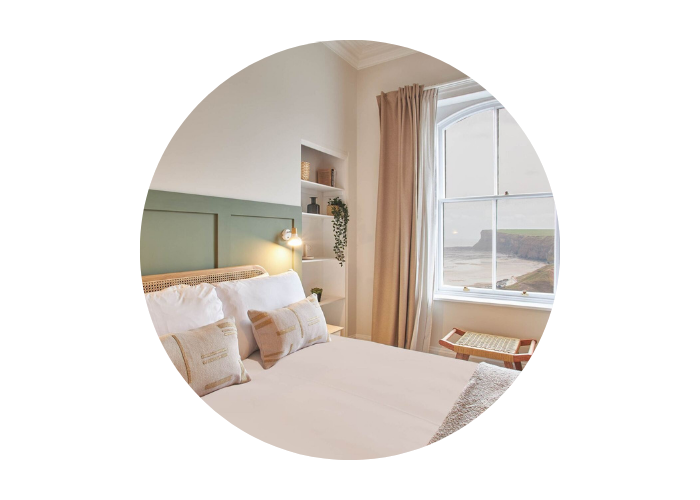
Our Guide to Buying a Holiday Let
Wednesday 8th January, 2025 by Host & Stay
If you’re thinking about buying a holiday let, there are a number of factors you should consider. From location to legalities, taxes to holiday home mortgages, there are lots of things to check off the list. Whether you’re purchasing for profitable investment, somewhere for you and your family to enjoy, or you’re hoping to start a holiday let business, we’ve put together our guide to buying a holiday let to help you on your journey.
Skip to:
What’s the difference between a holiday let and buy to let?
Are holiday lets a good investment?
What are the advantages of owning a holiday let?
What are the potential disadvantages of owning a holiday let?
What type of property should I buy?
Where to buy a holiday home?
What should I look for when buying a holiday let?
How do I get a mortgage for a holiday let?
What are the legal regulations for holiday lets?
What does holiday let management involve?

What’s the difference between a holiday let and buy to let?
Before delving into the specifics of buying a holiday let, it’s useful to understand how it differs from a traditional buy to let property.
A holiday let is a short term let which is rented out for a short period from one night up to 31 days at a time. It’s also worth knowing that for certain tax benefits, holiday lets in England must be available and bookable for at least 210 days per year and let for at least 105 days to quality.
In comparison, a buy to let is a long-term let which is typically rented out from 6 months to a year at a time.
Are holiday lets a good investment?
When thinking about holiday lets as an investment, it depends on your main reason for purchasing one. When it comes to financial investment, holiday lets have potential for good investment and when done right, they can provide a steady income stream. There are several factors that play a significant role in the profitability of the holiday let such as location, property type, and management efficiency.
However not everyone invests in a holiday let purely for profit – for some the priority is having a second home they can enjoy themselves for holidays along with their friends and family.

What are the advantages of owning a holiday let?
Higher income potential
Holiday lets have a higher income potential as nightly rates for holiday lets often exceed monthly rates for traditional buy to let properties, especially during peak seasons.
Tax benefits
Qualifying holiday lets are eligible for Furnished Holiday Let (FHL) status, offering tax relief on expenses and capital gains.
Personal use
Owners can enjoy their own holiday let whenever they want so you can enjoy a staycation yourself.
Strong demand
UK staycations have grown in popularity, particularly in the wake of Covid-19, so there is a strong demand for holiday lets.
Flexibility
Pricing for holiday lets can be adjusted based on seasonal demand, so you have flexibility on what you charge.
Capital appreciation
Properties purchased in prime locations often appreciate in value over time.

What are the potential disadvantages of owning a holiday let?
High upfront costs
Purchasing and furnishing a holiday let requires significant investment.
Ongoing expenses
Maintenance, utilities and marketing costs can add up.
Regulations
Regulations for holiday lets can seem never ending including health and safety, insurance and planning permissions.
Seasonal demand
The income generated by your holiday let can fluctuate based on the time of the year.
Management intensive
If you’re planning on managing your holiday let yourself, frequent changeovers and guest expectations require active management which can be time consuming.
What type of property should I buy?
The type of property you choose can significantly impact your holiday let’s success. Different properties appeal to different markets, so consider your target audience when making a decision. Types of properties include:
Cottages
Cottages are perfect for couples or small families seeking a traditional UK experience.
Apartments
Apartments offer a fantastic base for solo travellers, couples or small groups in cities and popular towns.
Lodges and Cabins
Lodges and cabins are great for rural or woodland settings.
Large Homes
Large homes cater to groups and special occasions.

Where to buy a holiday home
It can be hard deciding where to buy a holiday home but highlighting your main reason for investing will help you to find the right property for you. If your main reason for buying a holiday let is somewhere for you to holiday throughout the year, it’s best to find somewhere you enjoy the most and go from there. You’ll be coming back to the same place, so you want to make sure it’s the perfect place for you.
In comparison, if you’re looking for profitable investment then it’s best to research the holiday let market and find a premium location where there is a higher demand for bookings. Popular destinations in the UK include coastal regions, national parks, and picturesque countryside areas such as the Lake District, Cornwall and Devon, the Yorkshire Dales, and the Cotswolds.
It’s best to research visitor demand to investigate the volume and demographics of visitors to your chosen area, accessibility to ensure there are decent transport links and amenities for guests, and competition to analyse the type of holiday lets already in the area. It’s worth noting that finding a property in a premium location may bring more competition from other holiday let owners.
If you’re planning on managing your holiday let yourself, this will also determine where you buy your holiday let. You don’t want your property to be located too far from your residence as that will make housekeeping, maintenance and compliance harder. Doing multiple changeovers per week can be time consuming without the travel to and from the property on top, so this is something you need to consider.

What should I look for when buying a holiday let?
When searching for potential properties, here are a number of key features to look for:
Unique selling points
When looking for a holiday let, particularly in popular locations, it’s good to find somewhere with a unique selling point to set it apart from the rest of the market. Whether it’s scenic views or historic charm, your holiday let needs to offer something different to catch the eye of potential guests.
Low maintenance
Look for durable fixtures and fittings when viewing properties to reduce long-term costs.
Space and layout
Comfortable accommodation and practical layouts enhance guest satisfaction, so this is something to always keep in mind. Does the property work for your target audience?
Condition
Evaluate the structural integrity and identify potential repair costs.
Amenities
Does the property have facilities like Wi-Fi, parking, and heating in place?
Proximity to attractions
Properties near popular attractions or natural landmarks tend to attract more bookings.
Regulations
You’ll need to verify planning permissions and any local restrictions on holiday lets.
How do I get a mortgage for a holiday let?
Financing a holiday let differs to a standard residential mortgage. When it comes to buying a holiday let, you’ll need to apply for a ‘holiday home mortgage’. Lenders typically require a higher deposit of anywhere between 25% and 40% for this type of mortgage. As well as this, fewer mortgage providers cater for holiday home mortgages and the criteria for qualifying for a holiday home mortgage is much stricter than other types.
Because of this, you should seek the advice of a good commercial mortgage broker when assessing the options that you have. Unlike traditional buy to let funding where the lender will almost certainly prohibit the use of the property for short-letting and holiday letting, several commercial funders will allow short term lets and there are a handful of lenders that have specific holiday let mortgage products.
A well-qualified broker will be able to guide you on what each of their lenders will look for, and this will help support you when selecting the right lender for your strategy. If you have a ‘traditional’ holiday let property, then this should be relatively straight forward but if you’re running a high turnover SA (Serviced Accommodation) unit, then it is worth researching lending options in detail to ensure the lender isn’t going to uncover something that they don’t approve of.

What are the legal regulations for holiday lets?
Operating a holiday let comes with several legal obligations. Understanding and adhering to these regulations is essential to avoid fines and ensure guest safety. This includes:
Health and Safety
Ensure the property is safe and compliant for guests. This covers everything from removing trip hazards to providing emergency contact details. Holiday lets also require fire safety and gas safety regulations which we cover in more detail here.
Planning Permissions
Some areas may have restrictions on short term holiday lets.
Insurance
You’ll need to obtain specialist holiday let insurance covering public liability and property damage. For more information on holiday let insurance, head to our blog post here.
Licensing
In some places, such as Scotland, licenses are required for short term holiday lets.
What does holiday let management involve?
 Managing a holiday let requires significant time and effort. It includes every aspect of holiday let management including marketing, guest communications, cleaning, laundry, maintenance, compliance, and payment processing. Want to know more? We’ve put together our guide to holiday let cleaning, maintenance and compliance here.
Managing a holiday let requires significant time and effort. It includes every aspect of holiday let management including marketing, guest communications, cleaning, laundry, maintenance, compliance, and payment processing. Want to know more? We’ve put together our guide to holiday let cleaning, maintenance and compliance here.
At Host & Stay, we can take care of as much or as little as you’d like. We can cover everything for you with our fully managed service plans or if you’d prefer to manage some aspects still, that’s fine too. Choosing a holiday let management company means you can save time, improve guest experience and leverage professional expertise.
GET IN TOUCH TODAY TO FIND OUT MOREBuying a holiday let in the UK is a rewarding venture when approached with careful planning and research. Whether you’re aiming for a steady income stream or a personal retreat, investing in a holiday let offers both financial and lifestyle benefits.
If you’re ready to take the plunge into the holiday let market, remember that preparation is key. From securing financing to understanding management needs, each step is crucial in turning your holiday let dreams into reality.
Disclaimer
All information in this article is accurate at the time of writing based on our research. This article does not constitute the giving of legal, financial or tax advice. Please contact your own professional advisor if you require advice in this regard.